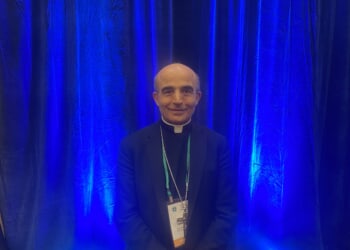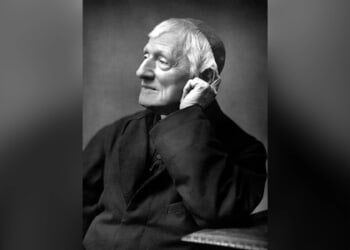High treason, a crime so often alleged in our public discourse and so seldom proven in an actual court of law, is now more of a metaphorical device than a felony. It is passing strange that the law of treason should have fallen into such a marked state of decay, considering its location in the very pith and heartwood of the ancient, sprawling, gnarled tree that is our common law tradition. Indeed, the Treason Act of 1351 (25 Edw. 3 Stat. 5. c. 2) is counted among the oldest parliamentary acts still in effect, with only the Statute of Marlborough (1267), the Statute of Westminster (1275), the Quia Emptores (1290), and the iconic Magna Carta predating it. “The objects of the laws are rights and wrongs,” as every good student of Blackstone knows, and what greater wrong is there than to compass, or to effectuate, the murder of your sovereign, or to adhere to your sovereign’s enemies by giving them aid and comfort? And what greater right is there on the part of the sovereign than to have such treachery punished, and punished severely?
Back in the good old days of the Plantagenets, if you were convicted of high treason, you could expect to be hanged, drawn, and quartered (if you were a man), or drawn and burnt alive (if you were a woman). Commit the lesser offense of petty treason, and you would only be drawn on a sledge and then hanged without quartering (for the lads), or burnt without the whole drawing business (for the ladies), “tho’ it be usual to strangle them first at the Stake.” Always be thankful for small mercies. Such torturous methods of capital punishment, which were not enacted purely out of sadistic bloodlust, but as salutary reminders of the seriousness with which the state treated attacks against its authority by those owing it allegiance, have understandably become a thing of the past.
So too, it seems, has the very crime of treason itself, which has entirely disappeared from our case dockets, although we still enjoy throwing the term around in an emotive fashion. The last individual to be tried for treason by the British authorities was the Nazi propagandist William Joyce, or “Lord Haw-Haw,” back in 1946, and even that was a close-run thing. Joyce’s attorneys argued, quite convincingly, one begrudgingly has to admit, that the infamous host of Germany Calling had been born in New York City, and an American citizen can hardly be a traitor to a foreign Crown. He had, however, been issued a British travel document at one point in his misspent existence, and even if he had misstated his nationality on the passport application, the fact that he had been afforded diplomatic protection by His Majesty’s Government meant that he owed an allegiance to the King, thereby making his odious behavior during the Second World War technically treasonous, and punishable by hanging. And so he was hanged on January 3, 1946, after using the last words afforded to him to spew some drivel about international Jewry and the merits of fascism. When the trapdoor opened, Lord Haw-Haw plunged into the gallows basement, at which point the nasty scar that once graced the turncoat’s face split open from the pressure of the noose, and then he was no more. A fitting end, but one does wonder whether William Joyce really was the last traitor ever to make Britain his home, or whether he was merely the last to be convicted of that most serious of crimes — a distinction worth considering.
In the United States, the lattermost treason conviction came in 1952, when the Japanese-American dual citizen Tomoya Kawakita, an interpreter at a Japanese mining and metal processing plant where American prisoners were severely mistreated, was found guilty on eight out of 13 counts of treason and condemned to death. (His sentence was later commuted to life imprisonment and a fine of $10,000, and in 1963, he was deported to Japan.) Cold War villains like the Rosenbergs were typically charged not with treason, but with conspiracy to commit espionage on behalf of a foreign enemy, and it would not be until 2006 that another American would again be so accused, when the al-Qaeda operative Adam Yahiye Gadahn was indicted by a federal grand jury for the capital crime of aiding and abetting an enemy of the United States. The Oregon-born jihadi was eventually vaporized by a drone strike in Waziristan, and thus Kawakita remains the last convicted traitor to the United States.
In 2023, a British national by the name of Jaswant Singh Chail was convicted under a different Treason Act, that of 1842, after having been caught infiltrating the grounds of Windsor Castle, armed with a loaded crossbow, with the intent to assassinate Queen Elizabeth II. For all that, his crime was not deemed high treason, but rather a high misdemeanor, and he was subjected to a hybrid order under the Mental Health Act. While storming the queen’s private residence on Christmas Day, Chail had been dressed as a Star Wars “Sith Lord,” was babbling about the 1919 Amritsar Massacre, and claimed to have been acting under the influence of his AI chatbot “girlfriend” Sarai, with whom the would-be assassin had been carrying on a torrid love affair. Chail was clearly no Guy Fawkes, Roger Casement, or Lord Haw-Haw, but his and other dangerous plots have led MPs like the Conservative Tom Tugendhat and his Labour counterpart Khalid Mahmood to propose in their Policy Exchange paper “Aiding the Enemy: How and why to restore the law of treason” that the medieval Treason Act should be updated for the 21st century. Britain would be considerably safer, they argued, if British citizens who join ISIS, for example, or go around trying to murder monarchs in order to impress automated conversation systems, could be locked up for life under the Treason Act, rather than given shorter sentences under the Terrorism Act of 2000, or other criminal statutes. The independent parliamentary Law Commission has rejected such recommendations out of hand, insisting that the law of treason has “ceased to be of contemporary relevance,” and that the relevant counterterrorism and counterespionage powers already wielded by the Crown are sufficient to safeguard the Sceptered Isle.
That simply isn’t the case, though. Recent weeks have seen Keir Starmer’s shambolic Labour government embroiled in yet another scandal, this time after the unexpected collapse of the prosecution of two men accused of “gathering and providing information prejudicial to the safety and interests of the state,” i.e., spying for China. The defendants, one a former parliamentary researcher, the other an academic, had been charged under the Official Secrets Act of 1911 in April of 2024, but on Sept. 15, 2025, the Crown prosecutors abruptly (and suspiciously) dropped all charges on the grounds that the available evidence did not meet the necessary threshold for the trial to proceed. At issue was the statutory language of the Official Secrets Act, which defines a spy as someone who:
obtains, collects, records, or publishes, or communicates to any other person any secret official code word, or pass word, or any sketch, plan, model, article, or note, or other document or information which is calculated to be or might be or is intended to be directly or indirectly useful to an enemy.
The fate of the trial of Messrs. Christopher Cash and Christopher Berry, therefore, depended on whether or not China could be considered an “enemy” of Britain. Deputy national security adviser Matthew Collins, in a witness statement given to the court, cast doubt on whether China could be given that status. Although China undoubtedly represents “the biggest state-based threat to the UK’s economic security,” and regularly “conduct large-scale espionage operations against the UK,” Collins maintained that the British government remains “committed to pursuing a positive relationship with China,” since the “government’s position is that we will co-operate where we can; compete where we need to; and challenge where we must, including on issues of national security.” China, occupying the curious position of half-threat, half-partner, could not be considered an enemy, strictly speaking, and so the two accused could not have been acting as spies, under the narrow language of the Official Secrets Act. (RELATED: DOJ Cracking Down on CCP Espionage)
This interpretation of the Act would seem to give license to the unfettered “gathering and providing information prejudicial to the safety and interests of the state,” provided Britain is not actively at war with the recipient of the sensitive intelligence. That said, it is clear that the Starmer regime does not regard China as an enemy. Prominent Labour figures, including David Lammy, Rachel Reeves, and Jonathan Powell, have all visited China in recent months, along with the largest British civic delegation ever to make its way to distant Cathay. After years of tension between Beijing and the successive Conservative governments of Boris Johnson, Liz Truss, and Rishi Sunak, there is, according to one of the participants of that junket, East Midlands deputy mayor Nadine Peatfield, “a real hunger and appetite to rekindle those relationships.” The inconvenient fact that British citizens were (allegedly) running around with briefcases full of CCP cash, and providing Chinese agents with reports on “subjects of political interest,” many of which were “prejudicial to national security,” might have imperiled the new “golden era” of Sino-British relations, and so the trial had to be scuppered.
The collapse of the spy trial, and Starmer’s insistence on handing the strategically vital Chagos Islands over to Mauritius (and paying quite handsomely for the privilege), have together fed the narrative that, as Conservative leader Kemi Badenoch has alleged, the Labour government is “too weak to stand up to Beijing on a crucial matter of national security.” Some have gone further. Shadow Justice Secretary Robert Jenrick accused “Quisling Keir” of “colluding against the British people to surrender the Chagos Islands” as part of a “disastrous deal [that] is nothing short of traitorous,” while Shadow Home Secretary Priti Patel, slightly less stridently, declared that the whole affair “absolutely looks like a betrayal of the British people, a betrayal of our territory.” (RELATED: With Diego Garcia Military Base in the Balance, ‘The Chagos Farce’ Is No Laughing Matter)
“Quisling,” “traitorous,” “betrayal of the British people” — this is potent stuff. But what else are we to call cozying up to a genocidal regime that commits acts of espionage and under cable sabotage abroad, supports rogue regimes, illegally despoils with the world’s oceans with its sinister fishing fleets, aggressively militarizes the South China Sea, plots the violent takeover of a peaceful, democratic Taiwan, and, what is more, is already arranging to lease one of the Chagos Islands, Peros Banhos, from Mauritius, the better to capitalize instantly on Starmer’s folly? Combine this fecklessness in the realm of foreign policy with Labour’s catastrophic mismanagement of the economy, border security, and the justice system, and one does begin to suspect that Sir Keir Starmer, KCB KC MP, is on some kind of kamikaze mission to finish off the United Kingdom as a going concern, once and for all. As The Critic’s Luke Asahi has astutely observed, Starmer can be seen as a “man of destiny,” a world-historical figure in his own way, whose “failure isn’t just the failure of an individual or even a caesura in the rule of two-party politics; it is the judgment day for a whole social order.”
But is he a traitor, a Quisling, a betrayer of the nation? Perhaps not in the legal sense. We can use this sort of rhetoric when we know that the prime minister is never actually going to be charged with treason and incarcerated in a gloomy cell in the Tower of London, or what have you. We do love to talk about treason, even allege it, but we do not seem to want the laws of treason enforced. Treason is in many ways an uncomfortable concept. It is an outrageous crime, the most fundamental of all crimes, really, but those who are skeptical of the State might one day, in theory, be obliged to commit treason. As Patrick Henry put it in one of his rousing revolutionary speeches against the Stamp Act, “If this be treason, make the most of it,” while closer to our own times the novelist and journalist Rebecca West, in her 1949 essay “The Meaning of Treason,” suggested that “all men should have a drop of treason in their veins, if the nations are not to go soft like so many sleepy pears.” Those who value political and social stability prefer, however, not to think in such ominous terms.
And who is the traitor, anyway, the feckless ruler, or the rebel who violently overthrows him? For the Elizabethan courtier Sir John Harrington,
Treason doth never prosper: what’s the reason?
Why if it prosper, none dare call it treason.
Having realized this inherent contradiction, we have decided to do away with the crime altogether, while contenting ourselves with accusations that will never make their way before the bench. President Trump has accused former presidents Barack Obama and Joe Biden, and former Department of Homeland Security official Miles Taylor, of treason, while jurists like Carlton Larson have contended that the events of Jan. 6, 2021, in some way constituted the treasonous “levying of war” against the nation. The Founders, in their considerable wisdom, did not wish to see allegations of treason batted about like a political shuttlecock, and so required a high burden of proof in Article III, Section 3 of the U.S. Constitution. As a result, treason has progressively lost its teeth, and those who do genuinely betray their nation can still expect to be tried for seditious conspiracy, espionage, and the like, and never for treason itself. This is an understandable development, but whether it is all to the good, I am not sure.
In her thought-provoking essay on treason, Dame Rebecca West compared it to the other great primeval criminal taboo, that of incest, one a “travesty of legitimate hatred,” the other a “travesty of legitimate love.” It is a travesty so great that the well-ordered, law-abiding mind prefers not to dwell on it, the implications being so disturbing. There is, at the same time, something equally disturbing about a state that, however “bare-gnawn and canker-bit” by “treason’s tooth” — to borrow poor Edgar’s words from King Lear — cannot rouse itself to enforce the most ancient of all laws. Richard Ekins, a barrister, Oxford professor, and one of the contributors to the aforementioned Policy Exchange paper on the necessity of restoring the law of treason, has asserted that
the foundation of peaceful social life is the trust that we have in one another as fellow citizens in a self-governing state (our country), trust that is undercut when one aids the enemy. One who betrays his or her country in this way breaches the trust of his or her compatriots and threatens to weaken the trust they have in one another. Recognising and denouncing such acts of betrayal as serious wrongs is important to vindicate the trust that citizens (and others who enjoy the privilege of living peacefully amongst us) ought to be able to have in one another, trust that is, as we say, the foundation of decent, free social order. In this way the criminal law contributes to community cohesion, helping assure citizens that they may trust other citizens, who, whatever else may divide them, will not betray the country they jointly share.
The disappearance of that most fundamental crime of high treason from our courts, if not our opinion pages and social media feeds, bespeaks a troubling decline in the self-confidence of the state. Nobody wants to live in a world in which every failed policy outcome results in hanging, drawing, and quartering, but we should not delude ourselves into thinking that we live in a world with no traitors at all, in which the very idea of high treason being enforced at law is simply outré, passé, and démodé. Treason as a legal concept has been allowed to atrophy and become a distant juridical memory, both here and in the United Kingdom, to the point that Chesterton’s Fence naturally comes to mind. Perhaps we should remind ourselves why we had the law of treason in the first place, and not just the rhetoric of treason, before we abandon it altogether.
READ MORE from Matthew Omolesky:







![Keith Ellison Caught Promising to Fight State Agencies for Somali Fraudsters [WATCH]](https://www.right2024.com/wp-content/uploads/2026/01/Keith-Ellison-Caught-Promising-to-Fight-State-Agencies-for-Somali-350x250.jpg)

![Florida Officer Shot Twice in the Face During Service Call; Suspect Killed [WATCH]](https://www.right2024.com/wp-content/uploads/2025/12/Inmate-Escapes-Atlanta-Hospital-After-Suicide-Attempt-Steals-SUV-Handgun-350x250.jpg)






